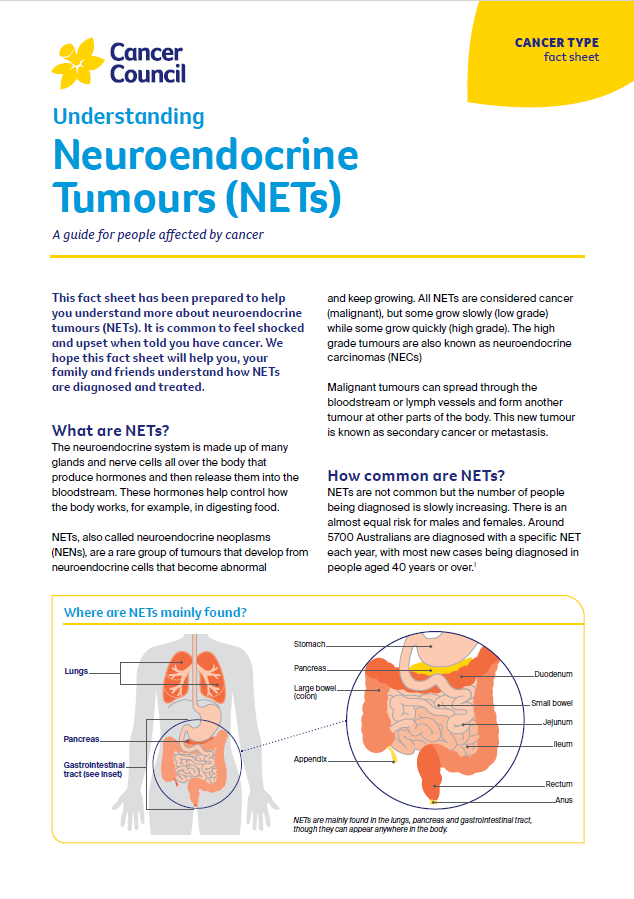- Home
- Neuroendocrine tumours (NETs)
- Managing side effects
Managing side effects of NETs
All treatments can have side effects. The type of side effects that you may have will depend on the type of treatment and where in your body the NET is. Some people have very few side effects and others have more.
Before treatment begins, your specialist team will discuss all possible side effects, both short term and long term. They may also discuss any late effects, which may not start immediately.
Common side effects of treatment for NETs include:
- fatigue
- loss of appetite
- nausea
- bowel and bladder changes
- damage to organs near the area being treated
- lymphoedema (swelling).
Certain treatments have their own specific side effects, such as an increased chance of hair loss, blood clots or gallstones.
Effects on fertility
Some treatment for NETs can affect your ability to have children (fertility), which may be temporary or permanent.
If it is important to you that you are able to have children in the future, talk to your doctor about what options are available.
Learn more about fertility and cancer or call 13 11 20.
→ READ MORE: Life after treatment for NETs
Podcast: Coping with a cancer diagnosis
Listen to more of our podcast for people affected by cancer
Podcast: Appetite Loss and Nausea
Listen to more episodes from our podcast for people affected by cancer
Prof Michael Michael, Gastrointestinal and Neuroendocrine Medical Oncologist and Co-Chair Neuroendocrine Unit, Peter MacCallum Cancer Centre, VIC; Tracey Bilson, Consumer; Meredith Cummins and Kahlia Wolsley, NeuroEndocrine Cancer Australia; Dr Ganessan Kichenadasse, Medical Oncologist and Pharmacologist, Flinders Medical Centre, SA; Dr Nat Lenzo, Nuclear Medicine Physician, ICON, WA; A/Prof David Pattison, Co-Director, Department of Nuclear Medicine & PET Services, Royal Brisbane & Women’s Hospital, QLD; Prof Jas Samra, Head of Upper GI Surgery, RNSH and Clinical Prof of Surgery, University of Sydney, NSW; Jillian van Zijl, 131120 Consultant, Cancer Council WA; A/Prof David Wyld, Director, Medical Oncology, Royal Brisbane & Women’s Hospital, QLD.
View the Cancer Council NSW editorial policy.
